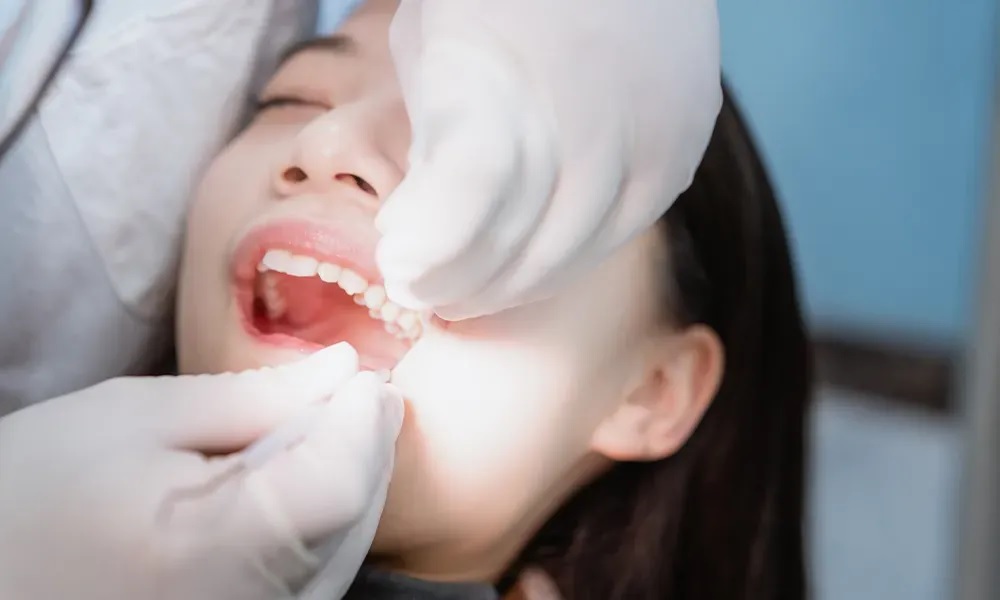Introduction
When it comes to enhancing your smile, dental veneers offer a transformative solution. Whether you’re looking to correct chips, stains, or gaps, veneers can provide a natural-looking and durable option. However, ensuring their longevity and brilliance requires proper aftercare. In this article, we delve into the specifics of caring for dental veneers in Melbourne, covering essential aftercare instructions and addressing common concerns about follow-up appointments.
Understanding Dental Veneers
Before delving into aftercare, it’s essential to understand what dental veneers are and how they work. Veneers are thin, custom-made shells crafted from tooth-colored materials like porcelain or resin. They are bonded to the front surface of teeth to improve their appearance, addressing various cosmetic imperfections. With proper care, veneers can last for many years, providing a durable and aesthetic solution.
What Are Dental Veneers Made Of?
Dental veneers can be fabricated from different materials, including porcelain and composite resin. Porcelain veneers are known for their durability, stain resistance, and ability to mimic the natural translucency of teeth. On the other hand, composite resin veneers offer a more affordable option and can be directly applied to the teeth in a single visit.
How Do Dental Veneers Work?
The process of getting dental veneers typically involves several steps, starting with a consultation with your dentist. During this visit, your dentist will assess your oral health, discuss your goals, and determine if veneers are suitable for you. The procedure involves preparing the teeth, taking impressions, fabricating the veneers, and bonding them to the teeth.
Taking care of your dental veneers is essential for maintaining their appearance and longevity. While veneers are durable, they still require proper maintenance to ensure they stay in optimal condition. Here are five essential aftercare instructions for dental veneers in Melbourne:
Maintain Good Oral Hygiene
Just like natural teeth, dental veneers require regular brushing and flossing to prevent plaque buildup and maintain oral health. Use a soft-bristled toothbrush and non-abrasive toothpaste to avoid scratching or damaging the veneers. Additionally, consider using an antibacterial mouthwash to reduce bacteria in the mouth.
Avoid Excessive Force or Pressure
While veneers are strong, they can still be damaged by excessive force or pressure. Avoid biting down on hard objects like ice, pens, or fingernails, as this can chip or crack the veneers. Similarly, refrain from using your teeth to open packages or bottles to prevent damage.
Protect Against Teeth Grinding
If you have a habit of grinding or clenching your teeth, known as bruxism, consider wearing a nightguard to protect your veneers while you sleep. Teeth grinding can exert significant pressure on the teeth, leading to damage or wear over time. A nightguard acts as a cushion, reducing the impact of grinding on the veneers.
Attend Regular Dental Check-ups
Regular dental check-ups are essential for monitoring the condition of your veneers and addressing any issues early on. Your dentist can assess the integrity of the veneers, check for signs of damage or wear, and recommend any necessary adjustments or repairs. Routine cleanings also help maintain the health of your gums and natural teeth.
Avoid Staining Agents
While porcelain veneers are resistant to staining, they are not entirely impervious. To keep your veneers looking their best, avoid consuming excessive amounts of coffee, tea, red wine, or other staining agents. If you do indulge, rinse your mouth with water afterward or brush your teeth to minimize staining.
FAQs
Q1: How long do dental veneers last?
With proper care, dental veneers can last for 10-15 years or even longer.
Q2: Can dental veneers be whitened?
No, dental veneers cannot be whitened with traditional teeth whitening methods. However, they are resistant to staining, so maintaining good oral hygiene can help preserve their whiteness.
Q3: Are dental veneers reversible?
The process of getting dental veneers is irreversible, as it involves removing a small amount of enamel from the teeth to accommodate the veneers. However, if necessary, veneers can be replaced or removed by a qualified dentist.
Q4: Will dental veneers feel different from natural teeth?
Initially, you may notice a slight difference in sensation due to the addition of the veneers. However, with time, most people adapt to the feeling, and veneers become virtually indistinguishable from natural teeth.
Q5: Can dental veneers be repaired if damaged?
Yes, minor damage to dental veneers can often be repaired by a dentist. However, significant damage may require replacement of the veneers.
Conclusion
In conclusion, dental veneers in Melbourne offer a versatile and effective solution for enhancing your smile. By following proper aftercare instructions and attending regular dental check-ups, you can ensure the longevity and brilliance of your veneers. Remember to practice good oral hygiene, avoid habits that can damage the veneers, and consult your cosmetic dentist if you have any concerns. With proper care, your dental veneers can provide you with a radiant smile for years to come.
